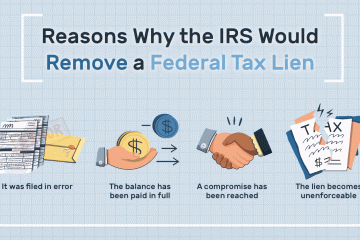
Navigating legal matters related to family can be a complex and emotionally charged experience. Family law encompasses a range of issues, from divorce and child custody disputes to adoption processes and guardianship matters. During such times, a family lawyer becomes an indispensable ally, providing expert guidance and advocacy.
Family lawyers possess extensive knowledge of family law and are committed to protecting your rights and interests. They support clients through negotiations, represent them in family court, and ensure that individual voices are heard. This guide will examine the key responsibilities of a family lawyer and offer practical advice on selecting the right professional to assist you through challenging and significant times.
Understanding the Various Aspects of Family Law
Divorce
Divorce represents a significant portion of the work undertaken by family lawyers. When a marriage ends, a family lawyer helps manage the legal aspects, ensuring the fair division of property and assessing issues like alimony. These professionals are also instrumental in resolving matters related to child custody and child support during a divorce. They provide a structured process to help clients navigate the often-complicated legal terrain of ending a marriage.
Child Custody
Disputes around child custody are prominent in family law. These disagreements can arise during a divorce or as standalone issues when parents are not married. The primary concern in child custody cases is the well-being of the child. Family lawyers assist by negotiating custody and visitation arrangements that best serve the child’s needs. They also help draft comprehensive parenting plans to address the specific circumstances of the family involved.
Child Support
Child support is another critical element in family law. It is essential in divorce cases involving children and in child custody matters between unmarried parents. Family lawyers ensure that children receive adequate financial support from both parents post-separation. They assist in calculating the appropriate amount of support, filing necessary documentation, and enforcing payments ordered by the court. This helps secure the child’s financial stability regardless of the parents’ relationship status.
Adoption
The adoption process is complex and filled with legal requirements, making family lawyers crucial in this area. They help prospective parents navigate the necessary legal steps, such as filing paperwork, conducting home studies, and working with adoption agencies. Family lawyers also represent adoptive parents in court, helping to ensure a smooth process that culminates in a legally recognised parent-child relationship.
Restraining Orders
In cases where personal safety is a concern, family lawyers can assist with restraining orders. These legal orders are designed to protect individuals from abuse or harassment. Family lawyers guide clients through obtaining and enforcing restraining orders, offering vital support in cases involving domestic issues.
Prenuptial Agreements
Family lawyers regularly deal with prenuptial agreements, which are contracts established before marriage outlining the division of assets in case of a divorce. These lawyers provide the expertise needed to draft legally sound agreements, ensuring that all stipulations comply with current laws. This pre-marital planning can prevent disputes and provide clarity for both parties in the event of a separation.
In summary, family law covers a broad range of legal matters related to familial relationships. Family lawyers play a crucial role in guiding individuals through the complexities of these issues, from divorce and child custody to adoption and prenuptial agreements. By providing clear legal advice and representation, they help clients achieve resolutions that serve their best interests.
Alternative Dispute Resolution Methods in Family Law
Court proceedings in family law can often be confrontational and lengthy, making alternative dispute resolution (ADR) methods attractive for those seeking amicable and efficient solutions. These approaches strive to diminish conflict while promoting outcomes beneficial to all parties involved.
Mediation stands as a widely accepted ADR method. In this process, a neutral mediator guides communication and negotiation between parties. The mediator does not impose decisions but facilitates discussions to help reach a mutually agreeable resolution.
Collaborative law offers another route outside the courtroom. Here, both parties, along with their lawyers, engage in cooperative efforts to resolve the dispute without litigation. Creative solutions that accommodate everyone’s needs and interests are sought during these negotiations.
Arbitration presents a more structured ADR method. An arbitrator acts as a private judge, hearing arguments from both sides and making binding decisions typical of a court judgment. This method retains formality while offering a less adversarial environment than traditional courtroom battles.
ADR methods can be less adversarial and more time-efficient compared to court proceedings. They empower parties to maintain greater control over outcomes, enabling solutions tailored to their specific situations.
Read: ADR & Divorce
The Role of a Family Lawyer in Protecting Your Rights and Interests
A family lawyer plays a pivotal role in safeguarding your rights and interests throughout legal proceedings. Acting as your advocate, they ensure that your voice is heard. Their services extend beyond the courtroom, offering comprehensive assistance and advice.
One of the critical functions a family lawyer provides is legal advice and guidance. Rather than simply telling you what you might want to hear, they carefully review the details of your case, explain the relevant laws, and illuminate your rights and available options. This comprehensive knowledge allows you to make well-informed decisions that protect your interests.
Negotiating settlements is another key responsibility of family lawyers. They represent your interests during negotiations and strive for fair and reasonable resolutions. By considering all pertinent factors, they aim to secure settlements that align with your goals and priorities.
In court proceedings, family lawyers serve as your advocate by presenting your case, cross-examining witnesses, and arguing on your behalf. Their deep understanding of family law ensures that your rights are upheld, and that the court receives a clear and thorough representation of your position.
While they are not therapists, family lawyers recognize the emotional strain that legal family matters can impose. They aim to reduce stress by providing empathetic and understanding guidance. From offering clear legal advice to negotiating settlements and representing you in court, family lawyers work tirelessly to protect your interests and support you through challenging times.


